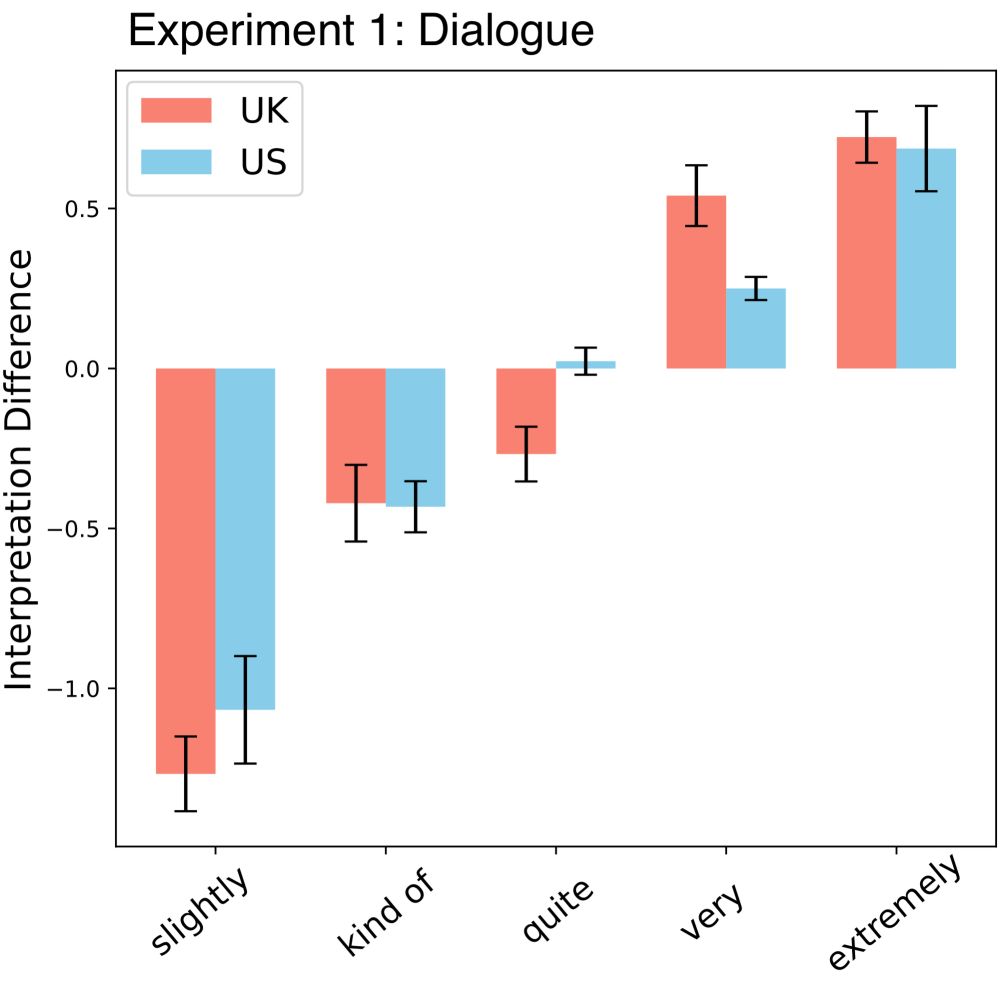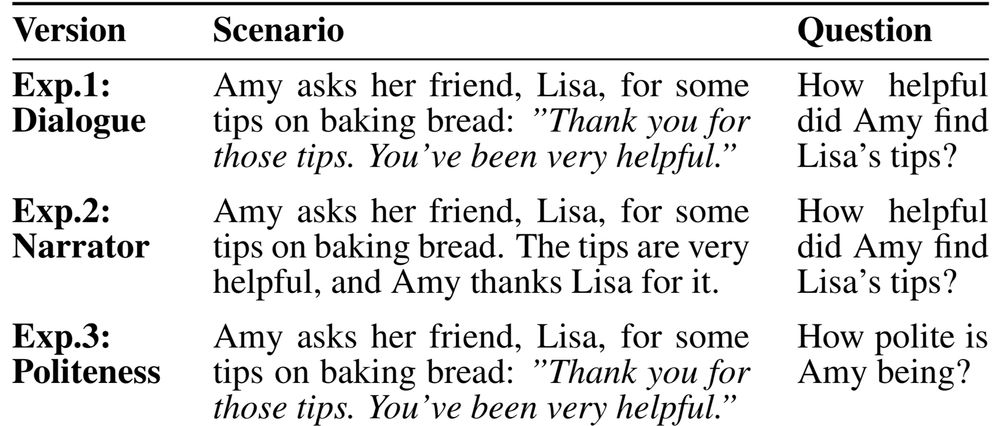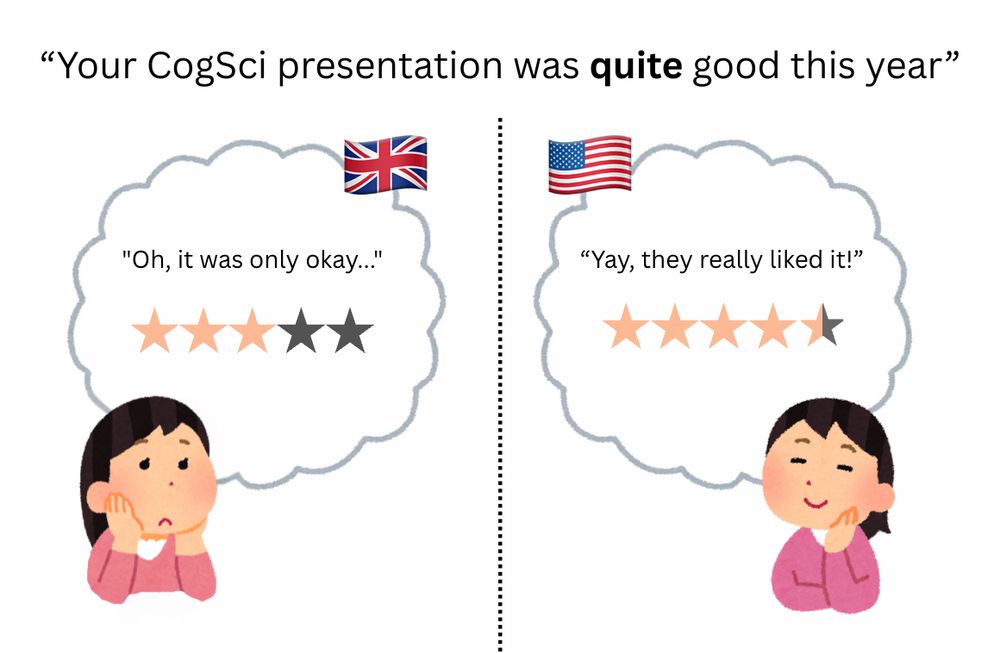Posts
Media
Videos
Starter Packs
Yuka Machino
@ymacci.bsky.social
· Jul 23
Yuka Machino
@ymacci.bsky.social
· Jul 23
Yuka Machino
@ymacci.bsky.social
· Jul 22
Yuka Machino
@ymacci.bsky.social
· Jul 22
Yuka Machino
@ymacci.bsky.social
· Jul 6

Minding the Politeness Gap in Cross-cultural Communication
Misunderstandings in cross-cultural communication often arise from subtle differences in interpretation, but it is unclear whether these differences arise from the literal meanings assigned to words o...
arxiv.org
Yuka Machino
@ymacci.bsky.social
· Jul 6
Yuka Machino
@ymacci.bsky.social
· Jul 6
Yuka Machino
@ymacci.bsky.social
· Jul 6
Yuka Machino
@ymacci.bsky.social
· Jul 6


